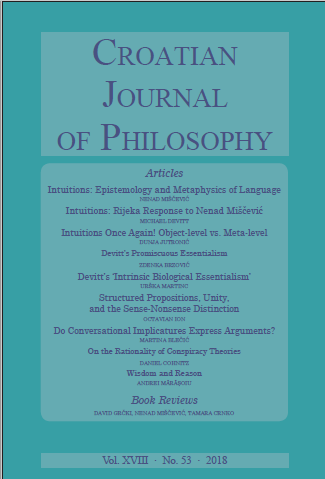Wisdom and Reason
Wisdom and Reason
Author(s): Andrei MărăşoiuSubject(s): Epistemology
Published by: KruZak
Keywords: Wisdom; rationality; evidence; virtues; transformative experiences;
Summary/Abstract: On Ryan’s (2012) theory of wisdom as deep rationality, to believe or act wisely is to believe or act in a justified way, informed by a body of other justified beliefs about the good life. Ryan (2017) elaborates the view along evidentialist lines: one’s belief or act is justified when it is based on the best available evidence. The resulting package faces counterexamples. Transformative experiences are rational ‘leaps of faith’ (Paul 2014), so the agent’s decision to undergo one is not best supported by the evidence available. Many transformative experiences (such as deciding to become a mother, or choosing a career path) often endow lives with meaning, and agents with a sense of purpose (Wolf 2010). Because so much is at stake, it is sometimes rational for agents to take on the risk involved in transforming themselves. Deciding to undergo such experiences may be wise—even if the evidence available at the time doesn’t positively support that decision. In reply to this challenge, I argue that, instead of evidentialism, Ryan’s view should include virtue theory, which helps explain the seeming counterexamples. I focus on the virtues of openness to experience, and of steadfastness in the face of experience.
Journal: Croatian Journal of Philosophy
- Issue Year: XVIII/2018
- Issue No: 53
- Page Range: 367-374
- Page Count: 8
- Language: English
- Content File-PDF

